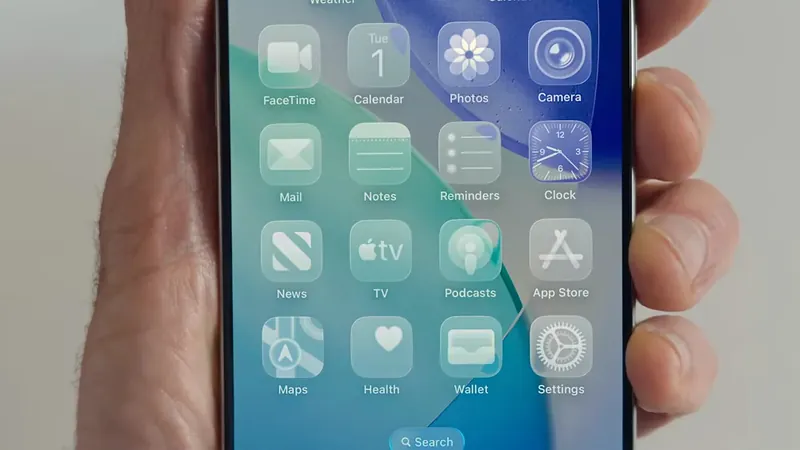
TikTok's Deadly Mental Health Myths: What You Need to Know!
2025-05-31
Author: Yan
Unmasking the Myths: Ordinary Emotions Misdiagnosed
Have you ever felt anxious when plans change? Or experienced mood swings? On TikTok, these everyday feelings are being misrepresented as symptoms of borderline personality disorder. Experts warn that this kind of pathologizing could mislead viewers into incorrectly diagnosing themselves. Liam Modlin, a therapist from King’s College London, emphasizes that such symptoms can stem from various struggles, not just mental illnesses.
Therapeutic Language Gone Wrong
Popular videos are misusing mental health terminology, misleading the public about conditions like bipolar disorder. One viral clip incorrectly states that mood swings are rapid—when in fact, these mood changes occur over weeks. Dan Poulter, an NHS psychiatrist, cautions that trivializing these experiences can deeply affect those living with serious mental health issues. Another troubling claim implies that suicidal individuals become 'almost bipolar,' further deepening stigma.
Watch Out for Misinformation in Hot Tips!
The misinformation crisis peaks with questionable treatment claims. Some TikTokers promote healing strategies that promise recovery from trauma in just an hour through a simple writing exercise. Amber Johnston, a psychotherapist, warns that such methods lack scientific backing and could inadvertently re-traumatize individuals.
Crying Myths and Simplistic Advice
One viral clip suggests that crying is an all-encompassing remedy for processing emotions. However, experts like Amy Durden highlight the complexity of emotional responses and remind us that crying can sometimes lead to shame rather than relief. Additionally, oversimplified advice like 'if you’re not changing, you’re choosing' fails to address the intricacies of mental health.
The Importance of Personalized Care
From breathwork to dietary claims about depression, various videos push unsupported ideas. David Okai, a consultant neuropsychiatrist, emphasizes that there’s no one-size-fits-all breathing technique for anxiety, and incorrect practices can exacerbate problems. Similarly, while some supplements show promise, they lack the consensus required for clinical application, cautioning us against claims of 'natural' cures.
Anecdotes Are Not Evidence
Anecdotal experiences are being mistaken for reliable evidence. Some videos recommend psychiatric unit admissions based on personal success stories. Poulter warns that such misleading narratives could create false expectations about inpatient care, which often does not work as simply as portrayed in TikTok stories. Moreover, clips promoting bizarre coping mechanisms—like eating an orange in the shower—lack foundation, and could lead to further unusual behaviors.
Navigating TikTok’s Mental Health Minefield!
With the rapid spread of mental health misinformation on TikTok, it’s crucial to approach content with a critical eye. Always consult qualified mental health professionals for accurate guidance. While social media can offer community and support, let’s not confuse viral trends with factual information. Protect your mental health—stay informed!

 Brasil (PT)
Brasil (PT)
 Canada (EN)
Canada (EN)
 Chile (ES)
Chile (ES)
 Česko (CS)
Česko (CS)
 대한민국 (KO)
대한민국 (KO)
 España (ES)
España (ES)
 France (FR)
France (FR)
 Hong Kong (EN)
Hong Kong (EN)
 Italia (IT)
Italia (IT)
 日本 (JA)
日本 (JA)
 Magyarország (HU)
Magyarország (HU)
 Norge (NO)
Norge (NO)
 Polska (PL)
Polska (PL)
 Schweiz (DE)
Schweiz (DE)
 Singapore (EN)
Singapore (EN)
 Sverige (SV)
Sverige (SV)
 Suomi (FI)
Suomi (FI)
 Türkiye (TR)
Türkiye (TR)
 الإمارات العربية المتحدة (AR)
الإمارات العربية المتحدة (AR)